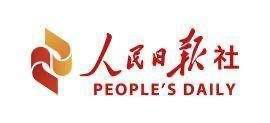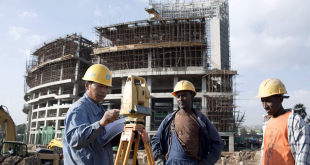Published:December 16,2021

By Gerald Mbanda
The recent democracy summit that was called by U.S.president Joe Biden, inviting some countries and leaving out others was seen as a political agenda to return the world into a cold war. The U.S. is setting a dangerous precedent of dividing the world into “good guys and bad guys.”
Although there is no country that can claim to have a perfect democracy, U.S. and the west in general believe that their democratic system is superior and therefore, should be imposed on other countries. the U.S. has no right to monopolize democratic standards to impose its own political system on other countries.
“The world needs greater diversity in the concept of democracy that is both historically truer (because democracy was not always liberal) and practically more beneficial,” argued Eric Li, (economist, Dec.8, 2021). Li continues to say that, Freedom House proclaims the “global decline in democracy has accelerated” and that even in America it has “declined significantly”. Much of the weakening is happening in countries that are aligned with America, according to research by the V-Dem Institute in Sweden. Larry Diamond, a political sociologist, argues that the “democratic recession” has reached a “crisis”, intensified by the pandemic.”
The COVID-19 pandemic has exposed governance weaknesses in rich countries, where their ability and preparedness to save lives remain wanting compared to developing countries that are considered economically weak and ‘undemocratic.’
While in the U.S. the rich are the ones who could afford to get medical care during the pandemic crisis, countries like China were able to contain the pandemic in a short period and treated all citizens equally, both the rich and the poor.
Beyond that, China shared the critically needed medical equipment and face masks with the rest of the world. China declared COVID-19 vaccines a public good and shared the much needed COVID-19 vaccines with countries in need, at a time developed countries were hording the vaccines. As the pandemic proved that global challenges respect no borders, people centred democracy too, goes beyond borders, and looks at the human race as a Community with a shared destiny.
Democracy and human rights therefore, is not about elections and freedoms. Its about a system able to improve the lives of people whether rich or poor. In 2020, China was able to eradicate absolute povertyafter lifting more than 100 million people in less than a decade. Is there any other country in the world which has set such a record before? I highly doubt.
John Ross, a former director of economic and business policy for the Mayor of London, talking about China’s framework and delivery on human rights and democracy, said China is “ far superior to the West’s”, as China focuses on real improvement of the real conditions of humanity.
China’s democracy is “Whole-Process People’s Democracy” a model of socialist democracy that covers all aspects of the democratic process and all sectors of society. China embraces multiparty system with nine political parties representing 56 ethnicities. The stability of Chinese political system since 1949 is a clear manifestation that the people centreddemocratic choice of the Chinese people works.
In a poll conducted in July 2020, by the Ash Center at Harvard’s Kennedy School of Government, it was established that 95% of Chinese people have confidence in their government. This strongly disproves U.S. narrative that China’s governance is authoritarian and undemocratic. People cannot express such high confidence in a government that denies them their fundamental rights.
On the other hand, in a poll conducted by Pew research center (SEPTEMBER. 14, 2020), reveals that public trust in the U.S. federal government has hovered at near-record lows. “Just 20% of U.S. adults say they trust the government in Washington to “do the right thing” just about always or most of the time.” The big question here is, what is the meaning of democracy and human rights, when majority citizens are not happy with the governance system?
In an interview with Al Jazeera (www.AlJazeera.com) English’s Head to Head, Dambisa Moyo, African prominent economist and author, argued that, it is, “mad, it’s crazy” not to see major problems in Western democracy today. The rise in populism; “has its roots in economics.” Regarding China and its economic model, Moyo commented how “over 300 million people have been moved out of poverty in 30 years” and that the West should be careful not to “point fingers” when commenting on the country’s democratic record which was on its own particular “path”.
In his book The People vs. Democracy: Why Our Freedom Is in Danger, Yascha Mounk, an Associate Professor of Practice at Johns Hopkins University’s School of Advanced International Studies in Washington D.C., and one of the world’s leading experts on the crisis of liberal democracy and the rise of populism, says that, after Brexit and the election of Donald Trump, “a whole genre of nonfiction has emerged seeking to explain how democracies die or why Western liberalism is in retreat.”
Mounk concludes that western democracy is failing because people are realizing that the system is no longer delivering on its core promises, namely to improve their lives and translate popular will into public policies. “The question now is whether these people can be persuaded that liberal democracy, for all its faults, is still the best way to organize a society,” Mounk observes.
There is an African proverb which says that, “a personwho has not travelled, believes that his or her mother cooks the best food.” Similarly, I believe the U.S. and the western world, before praising their democracy as the best, they can learn a lesson or two, on China’s democracy and why it works.
Gerald Mbanda is a Researcher and publisher on China and Africa.
For comments or opinion write to us on info@africachinareview.com
You can also follow us on twitter@africachinarev
 Africa -China Review Africa -China Cooperation and Transformation
Africa -China Review Africa -China Cooperation and Transformation



